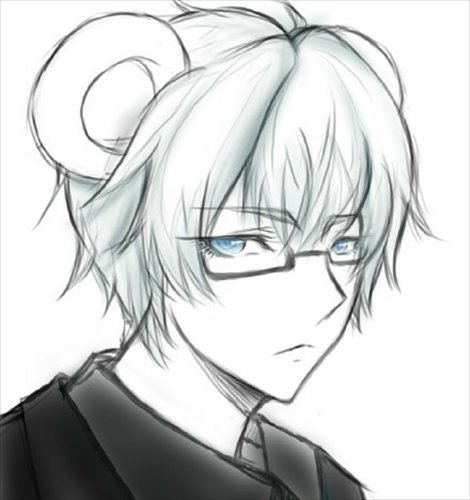Chinese youth add their personal touch to the burgeoning global meme subculture

China's guichu videos focus on puns and verbal jokes, while Western productions concentrate on audio editing, veteran producers and viewers say. Photo: Li Hao/GT
One of Mao Yuheng's most viewed videos, with up to 300,000 views, is one where US President Barack Obama sings about the advantages of socialism to the beat of a popular anime theme song, calling for people to honor "core socialist values."
Although it is not real, the "leader of the free world" singing in Chinese and touting socialist views is hilarious for many Chinese fans of guichu videos: audio and video content that has been edited and spliced to give sound and animation to the most unlikely of subjects - in this case Barack Obama.
According to Mao, 20, a student majoring in art digital media, the remix video is the product of a course assignment. It is one among the tens of thousands of popular guichu videos on acfun.com and bilibili.com, the two largest online video-sharing platforms in China. Often made by amateurs, guichu videos feature repeated images and sounds and catchy background music that are specially selected for comic relief.
"There are so many kinds. Some are dirty, some deliver positive thoughts, some get stuck in your brain [due to their repeated beat], and some you just can't stop playing on a loop," said Mao.
Mao has recently begun to make more guichu videos about Obama, and he is determined to enter the second annual guichu video competition on bilibili.com and hopefully win in August.
As the popularity of these videos grows online, Metropolitan talks to some of the celebrity producers to explore the subculture and compare it to its foreign counterparts.


Guichu fans enjoy the videos for their repeated images, fast tempo, and hilarious lyrics. Photo: IC

A sketch of Bai Shu, one of the most famous guichu producers in China Photo: Courtesy of Bai Shu
Making memes
Mao has more than 26,000 followers on bilibili.com. His most popular series includes videos that involve heated debates between China's well-known strategist Zhuge Liang and his enemy Wang Lang from the TV series based on Chinese classic novel The Romance of Three Kingdoms.
In the original TV series, the two engage in serious verbal battles over politics and patriotic morals, but in the recreated guichu works, the two discuss topics varying from celebrity gossip to comic plots, and even their entangled love-hate feelings toward each other.
The duo is among the most popular guichu stars. Their verbal battle video clips have been used in hundreds of viral guichu videos. "That's because their dialogue and the plot are very dramatic and put no limit on recreation, which makes them appealing even to modern viewers," Mao explained. For him, the charm of guichu culture lies in enabling both the producers and viewers to express themselves better, even if it's through seemingly silly or simple ideas.
Besides the duo, there are several other original clips from TV series, commercials, films, comics or viral short videos, which are made into memes due to a large number of guichu works based on those materials.
One example is a series of advertisements featuring excavator courses provided by Lanxiang Vocational School in Ji'nan, Shandong Province. The advertisements had been circulating on the Internet for a while due to their emotionally charged narrative before quite a few guichu producers realized that it was an opportunity and escalated the ads' popularity by remixing them into guichu videos.
One of them has been viewed over 3 million times on bilibili.com alone, and it was made by Bai Shu, 22, a clinical medicine major in Wuhan, Hubei Province. "The key to popularity is using hot real world issues instead of those in animations, comics and games," said Bai, who is the most popular guichu video maker on bilibilil.com, boasting 975,000 followers.
An electro-style song edited by Bai and "sang" by Papi Jiang, one of China's hottest Internet celebrities, is by far the most viewed video in the guichu section of bilibili.com with more than 8.7 million views.
"It also requires good computer skills especially in audio editing," he said. A diligent poster, Bai did his first video on bilibili.com in 2013, and since then, he has been perfecting his skills through practicing.
Guichu versus YouTube Poop
China is not the only country thriving on this video remaking phenomenon. In fact, China's guichu culture originated from Japan's otoMAD genre, which refers to a type of remix videos that combine video clips and images with edited soundtracks, often from anime and manga, and are mainly shared on nicovideo.jp. According to Bai, otoMAD is often dedicated to "recreating the original song as faithfully as possible."
The earliest works in China followed this pattern. But later, the definition of the genre and the techniques employed in content creation were developed and broadened, Bai said.
Another popular subgenre that has emerged in China is called the "manual Vocaloid." Vocaloid refers to a singing voice synthesizer. Producers in this subgroup cut audio, speeches, phrases or songs, into individual words, and then adjust the pitch of selected words to fit into a song so that it looks as if the speaker is singing the song. "It's like a song with rapping, and there is often an unusual pairing, in which the person will deliver a song that he or she is not likely to sing, such as Obama singing about socialism."
Another emerging type is the short film. Bai said this subgroup focuses more on the story told in the video and uses less musical elements. This genre is increasingly popular, as the plots can be very intriguing, featuring an all-star "cast." For example, Adolf Hitler might launch limerick battle against Ronald McDonald, while Jim Carrey dances to a beat given by Billy Herrington, a bisexual American pornographic film actor.
Westerners also have their own version of guichu: YouTube Poop (YTP), videos of clips that are remixed to make it sound strange. Some of the most commonly used clips include those of Super Mario Bros, Sponge Bob and Sonic the Hedgehog.
One of Mao's favorite YTP producers is a YouTube account called Schmoyoho by The Gregory Brothers.
"They made many good Obama videos, and their audio editing is distinctive," he said. "While domestic producers usually cut Obama's speeches into audio elements and then make them into a song, usually in Chinese, The Gregory Brothers write and dub their own background music and remake his speech into a nice piece [of music]."
Bai conceded that there are differences between Chinese guichu and its western counterpart. The YTP videos are more musical than entertaining. They might use the sound of an iPhone dropping on the ground as a clap or somebody kicking a door as a drumbeat, drawing materials from life to make it musical.
"It usually takes the creators a long time to pull elements from real life to compose the music and to edit. Sometimes they even film themselves. It makes sure that the video has breakouts and insights and even explores some important issues in the society."
Despite YTP MVs being more original in some cases, Bai said they are sometimes "less entertaining than the Chinese ones in terms of puns or verbal jokes."
Bai thinks the differences lie in what the market wants. The Western YTP reaches a much broader audience, whereas Chinese guichu culture is mostly based on bilibili.com. In the last one or two years, the site has seen a significant growth in the number of registered users, most of whom are teenagers.
"The comparatively lower average age of the community determines that the content be neither in-depth nor original," he said. "So, instead of being subtle, most of the jokes are blunt or even vulgar."
A global subculture
Ken Luo, 19, is another guichu video enthusiast. He is called a "courier" in the community, as he often goes to overseas video-streaming websites for interesting remix videos and then shares those he likes with the Chinese audience.
He thinks the domestic productions are still not as good as the otoMAD works. "After all, they have a longer history [of making the videos]. And many producers are professionals, while many of the posters in China are amateurs and hobbyists, who learned how to edit through watching video courses," he said.
Among the domestic works, Luo loves those that are based on animations and games the most. But he, too, has come to realize that his audience tends to prefer videos that are based on real-life clips.
"Chinese producers and audiences tend to chase popular clips of the moment, often from domestic TV series or sensational fun videos, and the background music they use is often the hottest at the time as well. Japan's otoMAD works tend to have a greater variety."
But he still loves guichu and can't stop. "If the background music is perfectly combined with the lyrics, it creates a magical tempo, and you would listen to it again and again. A serious shot [from a film] is replayed a couple of times in a short time; it's hilarious!"
Some of the most popular works are gaining a presence in certain pockets of society. You might hear these guichu soundtracks offline - in a taxi, at an exhibition, or from a fellow passenger's ringtone on a bus.
While the appreciation of this particular art form is still mostly limited to a certain community, there are some clips that are making waves further afield, "usually those based on real-world hot topics."
On top of improving his editing technique and staying on trend, Bai believes it's good to start to have commercial advertising in the videos. The financial rewards are a great incentive to continue devoting a lot of time and energy to make the videos.
In addition to Obama, Bai thinks Donald Trump could become the favorite of guichu video makers soon. "If he becomes president, he will be the next guichu megastar," Bai said of Trump.
Newspaper headline: Remix madness